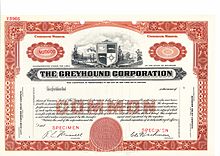A share in finance refers to a unit of ownership in a particular company. The value of these shares is primarily determined by market principles and influenced by factors such as market liquidity and ownership control. Shares can be categorized into different types, such as outstanding shares, treasury shares, and authorized shares, each with its distinct characteristics. The tax treatment for shares, specifically dividends, can vary by jurisdiction. Historically, ownership of shares was denoted by physical certificates; however, this has shifted towards electronic recording in recent times. There are also legal aspects involved in share ownership, as seen in cases like Slack Technologies, LLC v. Pirani, which relates to share registration. The concept of shares also extends to areas like employee stock ownership and social ownership.
In financial markets, a share (sometimes referred to as stock or equity) is a unit of equity ownership in the capital stock of a corporation, and can refer to units of mutual funds, limited partnerships, and real estate investment trusts. Share capital refers to all of the shares of an enterprise. The owner of shares in a company is a shareholder (or stockholder) of the corporation. A share is an indivisible unit of capital, expressing the ownership relationship between the company and the shareholder. The denominated value of a share is its face value, and the total of the face value of issued shares represent the capital of a company, which may not reflect the market value of those shares.

The income received from the ownership of shares is a dividend. There are different types of shares such as equity shares, preference shares, deferred shares, redeemable shares, bonus shares, right shares, and employee stock option plan shares.